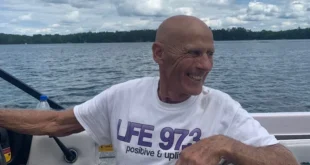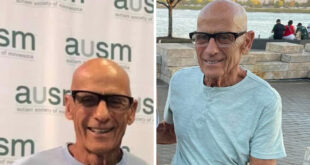The Arizona Court of Appeals has upheld the conviction of a man who was found guilty of the murder of his accomplice while fleeing from cops on a crime spree two years ago.
A La Paz County jury convicted Victor Silva after a unique and interesting trial in December 2015. Silva then filed motions for mistrial and judgment of acquittal, but the La Paz County Superior Court stood by the conviction, so he then took it to the Court of Appeals.
One of Silva’s arguments on appeal involved allegations of jury coercion. Because the trial was held just before Christmas, the jury knew its schedule would involve either reaching a verdict by 6 pm on Monday, December 21st, or coming back on December 30th to resume deliberations. At 5:54 pm the jury returned its verdicts: guilty on 5 counts and not guilty on 2 others. Silva argued that this schedule was coercive, but the Court of Appeals has disagreed, saying there was no evidence that the jury felt pressured by the schedule that they themselves agreed to.
Almost 2 hours before the verdict was returned, at 4:08 pm, a question arrived from the jury, which the judge addressed with counsel:
Q: “If we find guilt or innocence on four counts, and we are unable to reach unanimity on three remaining charges, what happens?”
The prosecutor requested that the court “inquire of the jury in more detail” whether they were “absolutely certain they would never come to an agreement on those other counts or whether they, with more deliberation, could come to an agreement.” Judge Samuel Vederman responded, “I don’t take it that way,” and explained he interpreted the question as a “legal issue,” with the jurors wanting to know “what happens ultimately” to counts for which no verdict is reached. Interpreting the question in the same manner as the prosecutor, defense counsel stated that “Rule 22.4 applies” because the jurors had effectively advised the court that they had reached an impasse in deliberations. The judge again stated that he believed the jurors were simply “trying to find out what happens to the three charges if they can’t agree on them.” The judge then suggested responding as follows:
A: “The question being asked is beyond the scope of the role of the jury. Please continue to deliberate. Please let the Court know if there is anything that would assist you with your deliberations.”
Neither party had an objection to that response, so it was given to the jury. 10 days after the trial ended, Silva argued that this was a coercive response because it was clear from the question that the jury was deadlocked, to which the proper response of the court is to inquire whether they are at an impasse. Again, the Court of Appeals disagreed with Silva, siding with Vederman’s court and denying Silva’s reasoning on jury coercion.
Silva also alleged a lack of jurisdiction, arguing that some of the crimes discussed happened in California. He alleged prosecutorial vindictiveness, improper denial of his request for mistrial after a law enforcement officer referenced Silva as a “homicide suspect” on the stand, he took issue with the jury instructions, and took issue with the court’s denial of his motion for judgment of acquittal. All these were denied by the Court of Appeals, with the exception that one of the counts will be amended from a class two felony to a class three felony instead.
Silva was later extradited to Sonoma County where he now faces trial for the murder of an 84 year-old woman at her ranch before he and his accomplice Stephanie Hill were chased into Arizona by law enforcement. A preliminary hearing took place in February, during which some initial testimony was heard.
—
Mar 2015 – Chase ends in desert
 Parker Live News from the Parker Strip since 2009.
Parker Live News from the Parker Strip since 2009.




